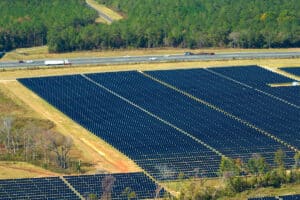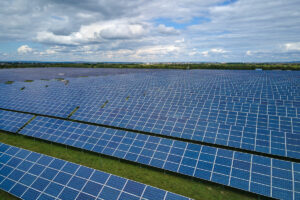As the world turns towards more sustainable energy solutions, solar power has gained significant popularity. When considering solar installations, two main options stand out for development, construction and other services: Solar EPC (Engineering, Procurement, and Construction) firms and local solar contractors. Both serve the purpose of creating solar power solutions, but the two possess distinct differences that shape their strengths and weaknesses. This article will explore the key contrasts between solar EPC firms and local solar contractors to help you make an informed choice for your solar project.
Understanding Solar EPC Firms
Solar EPC firms are comprehensive service providers that handle every aspect of solar installation projects. From design and procurement to construction and commissioning, EPC firms offer end-to-end solutions. These firms often have a wide geographical reach and can tackle large-scale solar projects, including utility-scale solar farms.
Key Attributes of Solar EPC Firms:
- Engineering Expertise: EPC firms employ experienced engineers who meticulously design solar systems optimized for efficiency and output. Their in-depth knowledge of solar technology ensures that the installations are tailored to meet specific energy needs.
- Procurement Prowess: The procurement team within an EPC firm sources top-quality solar components, ensuring durability and long-term performance. This attention to detail translates to better ROI for clients.
- Seamless Construction: EPC firms manage the entire construction process, from obtaining permits to final commissioning. Their skilled construction teams execute installations with precision and within stipulated timelines.
- Compliance and Regulations: With their industry experience, EPC firms navigate complex regulations and permitting requirements effortlessly, saving clients from potential legal hassles. Further, solar EPC firms can be more knowledgeable of applicable tax credits and government financial incentives for renewable energy projects.
Read: What are EPC Services?
Understanding Local Solar Contractors
On the other hand, local solar contractors focus on smaller-scale projects within a specific region. Local solar contractors usually collaborate closely with clients to design and implement solar solutions tailored to their needs. Local contractors are embedded in their communities and can offer more personalized attention to detail.
Key Attributes of Local Solar Contractors:
- Community Engagement: Local contractors have a vested interest in their community’s well-being. Their reputation hinges on providing exceptional service to their neighbors, fostering a sense of trust and reliability.
- Tailored Solutions: These contractors offer personalized solar solutions, considering individual energy needs and budget constraints. This customization ensures that the solar system aligns with the client’s expectations.
- Attention to Detail: Local contractors typically take on fewer projects at a time, allowing them to focus on every intricate detail. This results in meticulous installations and a higher level of craftsmanship.
- Quick Response: Being in close proximity to their clients enables local contractors to respond swiftly to maintenance and service requests, ensuring the longevity of the solar system’s performance.
Considerations for Solar Development– which is right for you?
Project Complexity and Scale
EPC firms excel in managing complex projects that involve multiple components and stakeholders. Their experience with large-scale projects ensures smooth execution. Local contractors shine in simplicity and customization, making them a great choice for residential and small-scale commercial projects.
Expertise and Specialization
EPC firms often have in-house teams of engineers, designers, and project managers. This expertise allows them to optimize every aspect of a project. Local contractors may specialize in specific types of installations, providing depth in certain areas.
Quality of Equipment
EPC firms tend to have established relationships with top-tier equipment manufacturers, ensuring access to high-quality components. Local contractors might have more flexibility in choosing equipment, allowing them to adapt to budget constraints.
Cost Considerations
In general, local contractors can offer more competitive pricing for smaller projects due to their lower overhead costs. EPC firms may provide cost advantages on larger projects due to economies of scale and procurement expertise.
Read: Tax Credits Available for Solar Energy Projects: A Comprehensive Guide
Timeline and Project Management
EPC firms have robust project management systems that facilitate timely execution. Local contractors might have quicker response times and more adaptable schedules for smaller projects.
Warranties and Maintenance Services
EPC firms often provide comprehensive warranties and ongoing maintenance packages. Local contractors may offer personalized warranty terms and maintenance agreements.
Flexibility and Customization
Local contractors can be more flexible in adapting to specific design requests and preferences. EPC firms might have standardized processes that offer less room for customization. Many EPC firms may offer tailored solutions and customization for solar projects based on availability and organizational bandwidth.
Local Regulations and Permits
Local contractors are intimately familiar with local regulations and permitting processes, ensuring smooth compliance. EPC firms might face challenges when dealing with varying regulations in different regions. However, EPC firms may be experienced in navigating regulations across broad regions with previous projects, so it is worth considering an EPC firm’s past portfolio to understand its familiarity with regulations, permits and tax credits for your area.
To see EnergyLink’s project portfolio, view our Case Study page.
The process of obtaining permits can differ from state to state. In certain states, there is a central agency or siting authority responsible for handling project applications, while in other states, developers may need to acquire permits from various state and local agencies. It is crucial for project developers to have knowledge of the local authority with jurisdiction and the specific codes they enforce.
Customer Reviews and Reputation
Both EPC firms and local contractors have their own track records. Researching customer reviews and their reputation can provide insights into their reliability and quality. It is important to consider a company’s past projects and partnerships, as well as the ongoing operation of current projects, to determine the best fit for your solar development.
Making Your Decision
Choosing between a Solar EPC firm and a local solar contractor depends on your project’s size, complexity, budget, and your specific preferences. Consider the factors that align with your priorities to make an informed decision.
In the world of solar energy, both Solar EPC firms and local solar contractors play pivotal roles. Each has its unique strengths, making them suitable for different types of projects. Assess your needs, project scope, and budget to determine whether a comprehensive approach from an EPC firm or small-scale personalization from a local contractor is the better fit for your solar project.
Read: Breaking Down a Commercial Solar Budget
Interested in a Solar EPC?
Whether you’re investing in solar energy to minimize your organization’s carbon footprint or to enjoy long-term savings, making an informed decision about your service provider is paramount. For an experienced solar EPC firm, consider partnering with EnergyLink. We provide tailored engineering, procurement and construction services for commercial & industrial organizations throughout education, government, healthcare, corporate and nonprofit sectors looking to implement sustainable technologies.
To get started, click here or speak directly with a team member by calling (866) 218-0380. Interested in staying up-to-date on the latest renewable energy industry news? Fill out the form below to sign up for our bi-weekly industry insights newsletter.






